The Bad Batch has come to a close and in its final moments manages to do something Star Wars has always struggled with: passing the torch and letting heroes rest.
This week brought the series finale of Star Wars: The Bad Batch to Disney+, and it sent the motley crew of “defective” clones out on a high note. Over the past three seasons, it’s been impressive to see how the characters have evolved/grown. As I’ve mentioned in my previous coverage of this season (here and here), the series has managed to overcome the odds and end up being my favorite Star Wars animated show.
The finale served as an excellent close to the specific story they were telling, keeping the focus on the titular ‘Bad Batch’ and their relationship with Omega. While it hints at bigger things going on within the galaxy (which I’m sure some fans were hoping to get more of), it brought their journey to a satisfactory close.
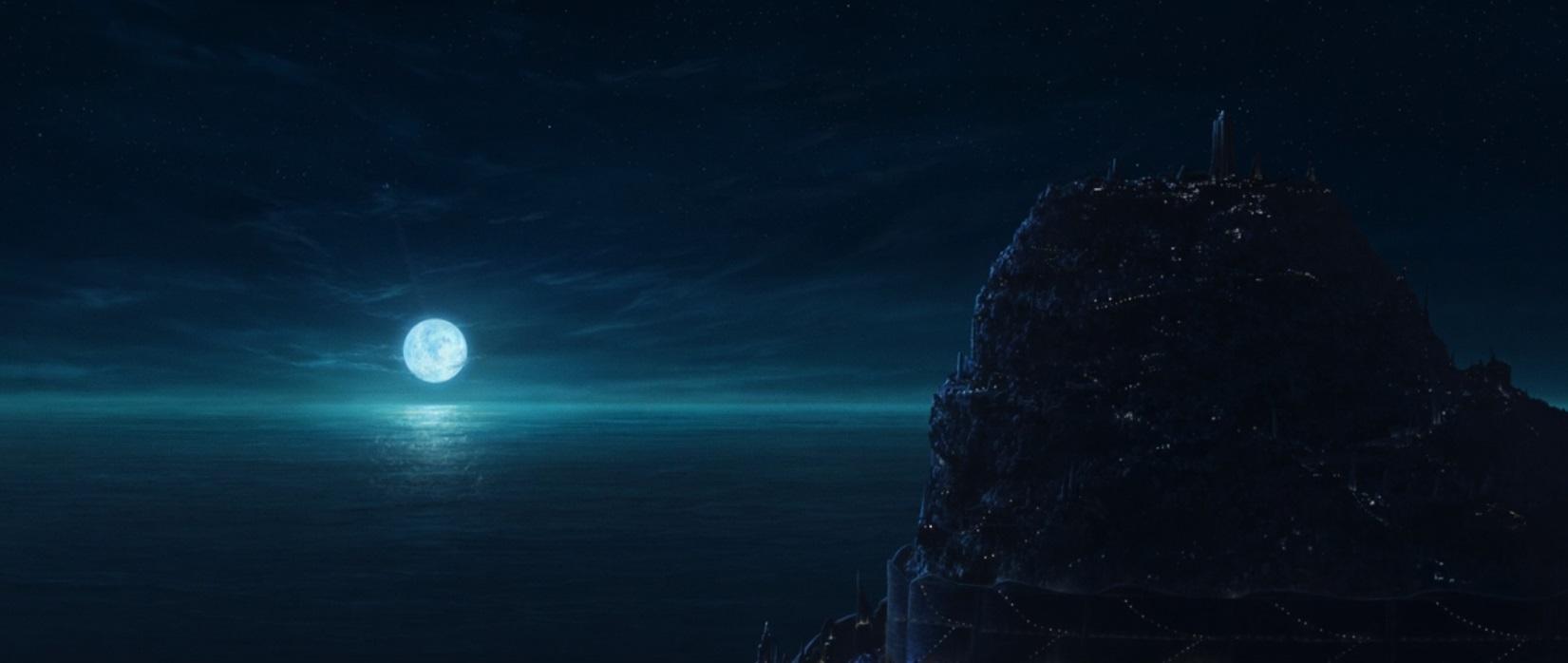
Its final scene—serving as an epilogue of sorts—is something my mind keeps returning to. Not only does it connect to some of the central themes of the entire series, but in a few short minutes manages to accomplish something Star Wars (from Legends to now) has frequently struggled to do.
Spoiler Warning: I’ll be discussing the final minutes of The Bad Batch, in detail, so if you haven’t watched yet this is your chance to turn back!
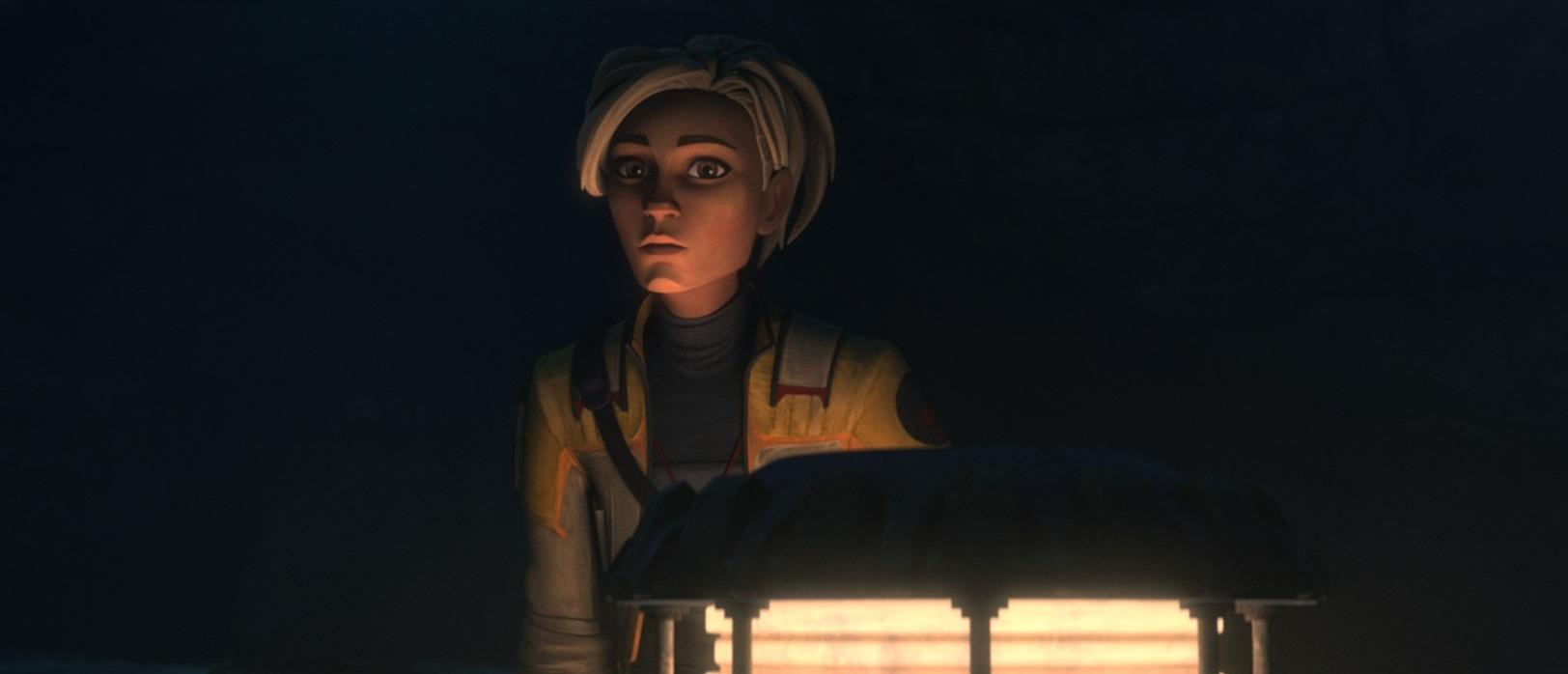
The epilogue attached to The Bad Batch series finale skips ahead a few years. While there’s no specific timeframe given, Omega is all grown up, while Hunter sports a hefty amount of grey and moves noticeably slower. Omega is leaving the haven of Pabu and embarking on her own journey to fight alongside the Rebellion (another indication quite a bit of time has passed) as they need pilots.
Though Hunter raises some arguments against her leaving, it’s a flimsy protest at best. It’s clear he’s mostly there to say his goodbyes. It’s a heartfelt and touching moment; the culmination of these characters growing over three seasons and the roles they play within their found family.

What struck me, however, is how there was never any conversation about him and the others going with Omega. Instead, there’s an understanding they aren’t expected to fight in this war. Only that they’ll do what they must if she “ever needs them.”
This brings up an interesting idea/question; one which Star Wars has rarely addressed. At what point do heroes get the option to rest; to put down their weapons and simply live? After all, is it fair to ask people to go to war simply because they survived the last one?
Obviously, there are a number of factors involved, and the answer would likely change depending on the character. Omega sums it up nicely, though, when she says, “You’ve all fought enough. This? It’s my fight.”

Would Hunter still join the fight if necessary? Absolutely. And we get the sense there might come a time when they no longer have a choice in the matter. What’s important here in this moment, however, is Hunter doesn’t have to fight. The way in which it’s handled allows both characters and audiences to accept it. More than anything, this element of acceptance is where Star Wars has struggled most.
Passing the torch to the next generation in storytelling is about far more than simply having younger/newer people arrive to take on the fight. It’s more than just them filling the spot our older heroes once held. In order to truly pass things on, everyone needs to be able to accept the previous hero is allowed to sit back.
Sometimes this is forced by one of them dying (though this fills a different heroic journey trope), but there are a plethora of examples we can look at. An easy go-to is The Lord of the Rings series which pointedly kicks off its tale by giving the previous main character (Bilbo from The Hobbit) a literal send-off party! Bilbo’s role in the story, important as it was, is over. Something audiences are reminded of when Bilbo reenters later on to confirm he’s at peace, while giving Frodo his old gear to help him along the way.
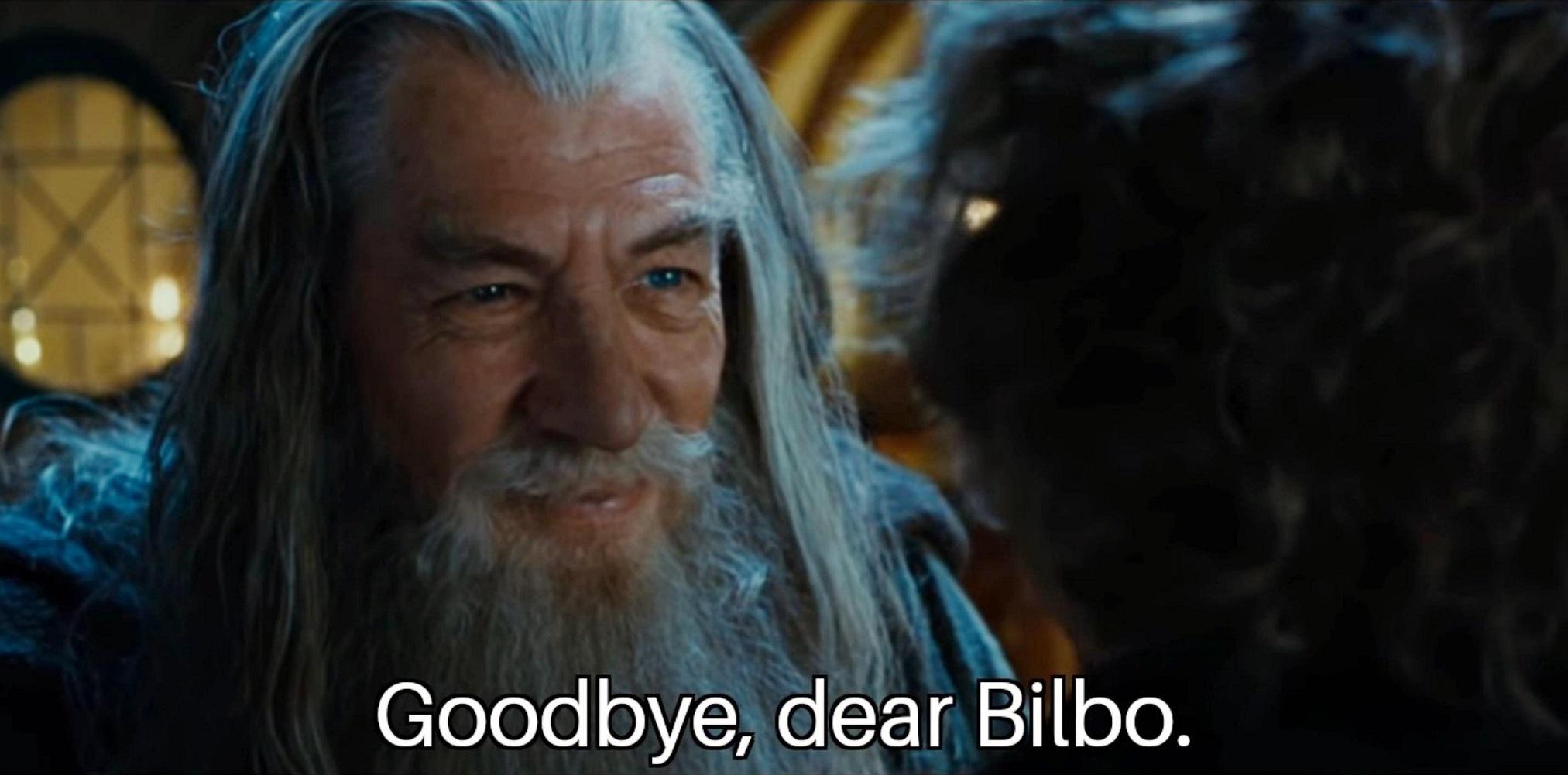
Bilbo’s part in the overall story of the One Ring is undoubtedly crucial, but there’s no pressure on him to continue the fight/adventure. Instead, everyone accepts that this new journey requires new people to step up.
Star Wars has rarely been able to do this in its storytelling. The old Expanded Universe (Legends now) was pretty infamous for its inability to move on. Even as they introduced the next generation of characters—in stories designed to pass the proverbial torch—and let them age to the point of having kids of their own…the post-Return of the Jedi novels couldn’t get away from Luke, Han, and Leia.
Crucible, the final EU book released in 2013, was especially egregious about this, but that’s neither here nor there. The point is, the only times the EU was able to move on, was when they set things during the Old Republic era, or so far in the future (e.g. Legacy) the storytellers were forced to change things up.
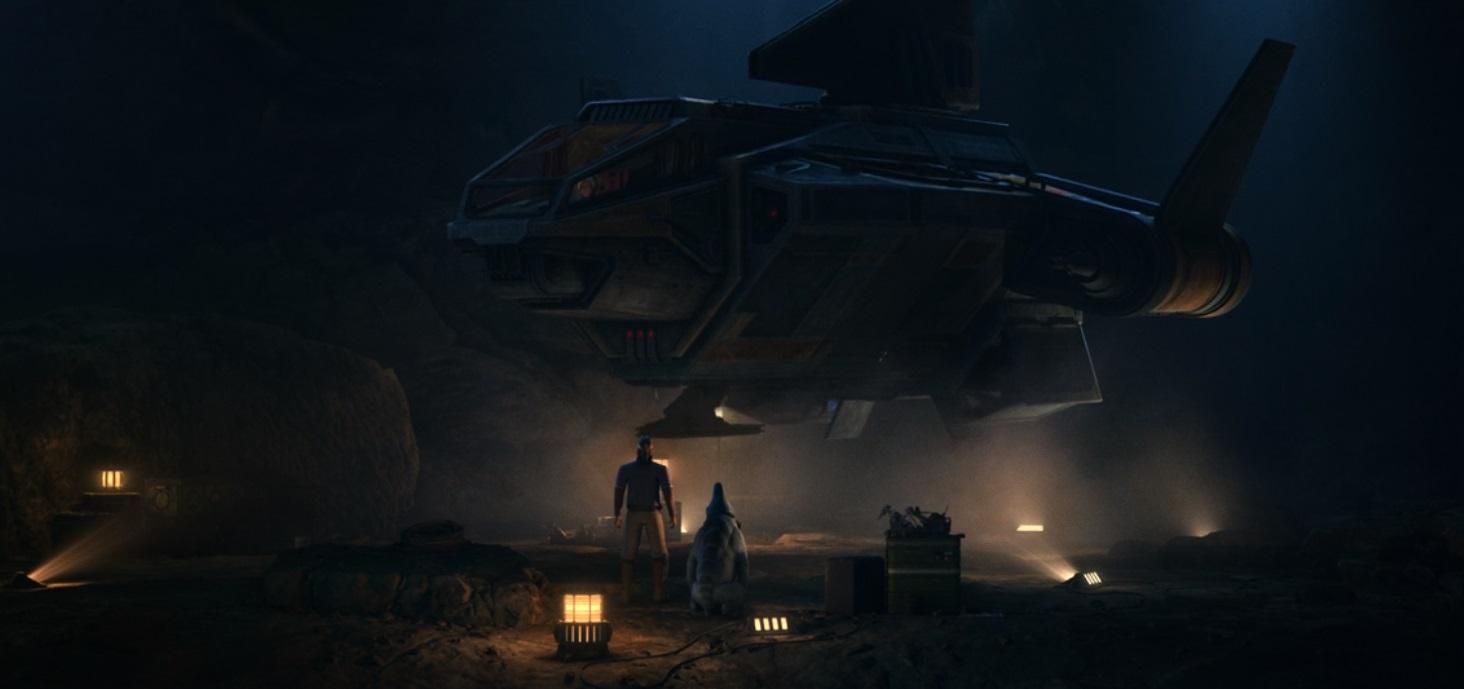
In the decade since the new Canon’s establishment, we’ve seen a reluctance to veer away from particular eras. Even when The Bad Batch was announced I was a little miffed at getting yet another story set during this period of time. The most recent Star Wars games (including Outlaws) have been centered mostly within the Imperial era. Old man Rex, along with other aging clones, were pulled back into galactic events thanks to Star Wars Rebels. Plus, the comics are doing their level best to fill up just about every minute of time between the original films.
On the movie side of things, there’s certainly an argument to be made the Sequel Trilogy felt hemmed in by its efforts to keep the previous heroes in the heart of the conflict. In the Sequels, there was a general sense that the characters we know and loved never stopped.
Sure, there have been a number of ancillary material which have shown otherwise, but in the films themselves, you never get the feeling any of them really had peace. During The Force Awakens, Maz Kanata says to Han, “You are right back in the mess!” But in reality, we never got to see him leave it. While I definitely enjoy the Sequels (and re-watch on the regular), the ‘baton-passing’ definitely feels a bit off.
![]()
Generally speaking, I’ve loved the majority of these new Canon stories. I’m merely highlighting how the franchise has continued to wrestle with the tricky subject of letting heroic characters simply be done.
And yet, in a handful of minutes, The Bad Batch was able to succeed in a way so effortless, it nearly goes unnoticed. There’s definitely fertile storytelling ground to be had in the concept of which heroes get to rest, and when, but at the moment, this scene serves as an excellent example of how it should be handled.
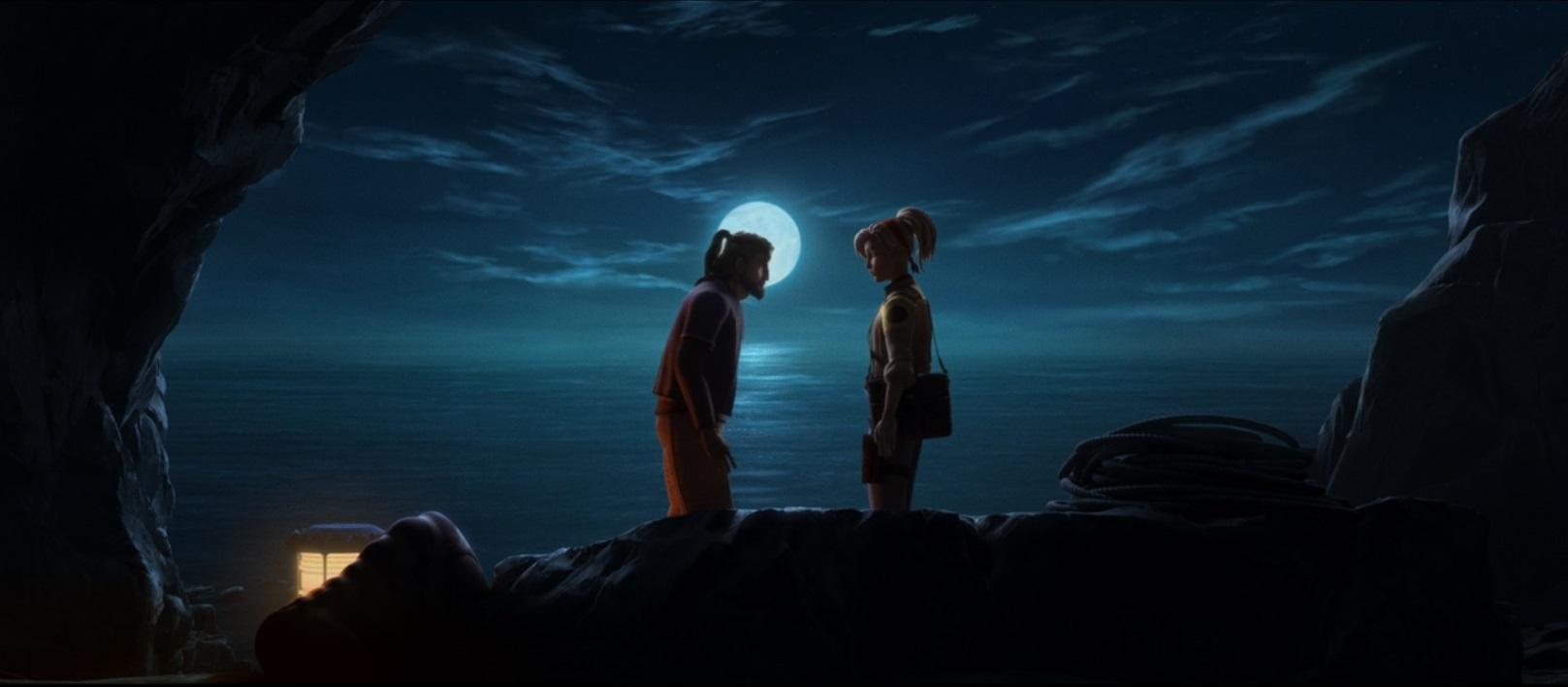
Things are left at a point where it feels like I could watch an entire series following Omega’s new adventures (which may be exactly where we’re heading). And if Hunter, Wrecker, and Crosshair never lifted a finger, or joined the action, I’d be completely fine with it. It’s a delicate thing to achieve, but necessary for generational storytelling to continue. That The Bad Batch does it so well, leaves me eager to see what Brad Rau and Jennifer Corbett do next in the galaxy far, far away.

